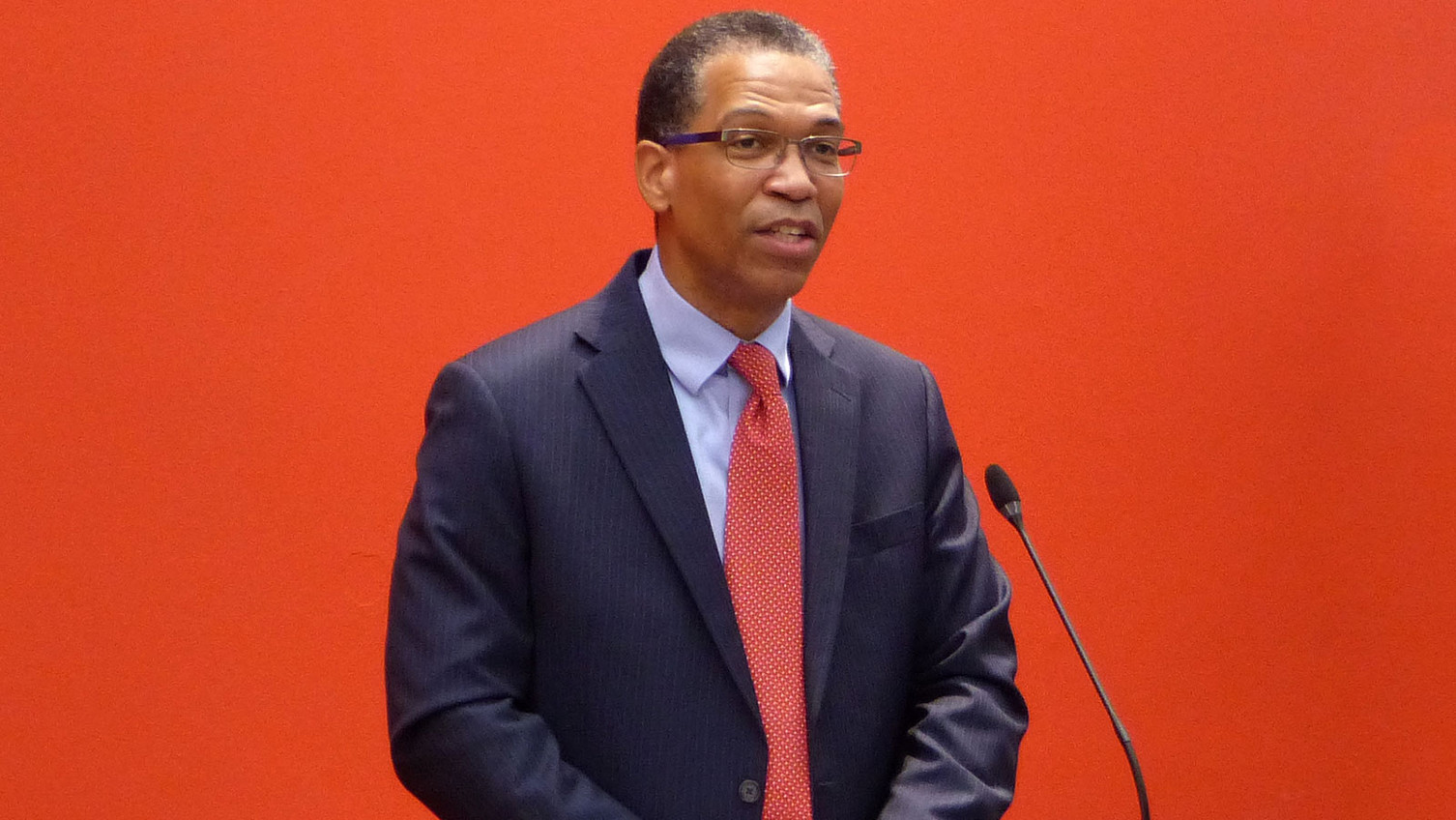"Worth The Struggle" U.S. Consul General Darion Akins on Education and Democracy
2021-12-06 Do we need democracy? How can we strengthen democracy? On November 18, 2021, North American Studies, situated in the Language Center and the Institute of English Studies, hosted U.S. Consul General Darion Akins for a lecture entitled "Worth the Struggle: Why Democracy Matters." In a personal interview, U.S. Consul General Akins commented on the relationship between education and democracy.
- Democracy is a complex system that is not all praise: Why is it so important to continue to promote strong democratic structures?
I think democracies are important because they are about citizen participation and contribution. It is about the duty of individuals to express their citizenship through participation and contribution.
- Why did you choose a career dedicated to democracy?
When I look back at the United States, I am proud of what we want to be, but at the same time I realise that we have not always achieved our goals. We have ideals like "all men are created equal", but we have not always fulfilled those ideals. Becoming a diplomat is my way of contributing to trying to live up to the ideals we have written in our constitution.
- Some people claim that democracy is not in the nature of humans. Must we, as citizens of democratic countries, learn democracy before we can participate in it?
Quite simply, no. It comes naturally. Everyone has a voice, and everyone wants to be heard. That is the crucial element of democracy. So, if you have that desire, you have the basic foundation for a democracy. I don't think it needs anything special. Maintaining a democracy, on the other hand, is a different question. That requires knowledge as well as that one uses that knowledge. A democracy will not maintain itself if people do not actively engage to ensure that the democracy remains vibrant.
- Democracy is regularly threatened by repressive rulers like Lukashenko in Belarus. To what extent do universities strengthen democratic structures to resist repressive powers?
Universities are essential for a democracy. These institutions train critical thinkers who then enter discourse – not only academic discourse, but also social discourse. Universities create a space where dissent and disagreement are allowed and encouraged.
The task of a university is to search for truth and facts with the aim of ensuring that we are informed and that we make this knowledge accessible and useful to a broad public. And in doing so, it also supports the critical exchange of research findings. This is a bulwark against misinformation, because if people can think critically for themselves, we can combat disinformation.- As a career diplomat, you are neither for nor against a party, but must remain neutral. Is that sometimes an inner conflict for you?
No, not at all. When I became a diplomat, it was made clear to us that our mission is to defend the constitution. We were always told that if you are morally and ethically conflicted, as a diplomat you are obliged to resign. Every president has the right to implement his policies. However, if the president does something illegal, I am not obliged under the Constitution to comply.
- What do you notice about German students and universities?
In terms of universities, I can say that students have a high level of knowledge, are very committed and are willing to openly discuss various – even controversial – issues to find a solution. That is something I appreciate very much.
- What can students and young people actively do to support and strengthen our democracy?
Get involved! Take the tools, resources and networks that are available to you and use them to get involved in your community – at university and in civil society. We have freedom of speech and protest, and when students exercise these rights, they can contribute. Historically, it is the students who critically look at issues that affect the world. They look not only at how it affects them, but how it will affect the future.
- Thank you!
Weitere Informationen
The lecture took place as part of the lecture series "Maple Leaf & Stars and Stripes". This interdisciplinary lecture series "Maple Leaf & Stars and Stripes" of the Language Centre offers a variety of historical, political, ethnographic, and literary perspectives on current events and issues from the neighbouring North American countries that meet at the 49th parallel: Canada and the United States. Scholars from North America and Germany will critically look at a variety of issues.

